Our Defining Principles of Operation
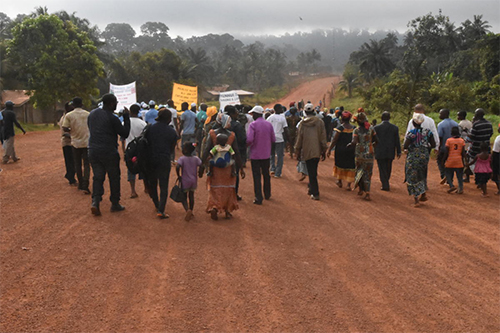
Our Mission
To invest in capabilities that can improve the lives and living conditions of the impoverished people of the Sarbo tribe and the adjacent tribal communities in River Gee County, Liberia.
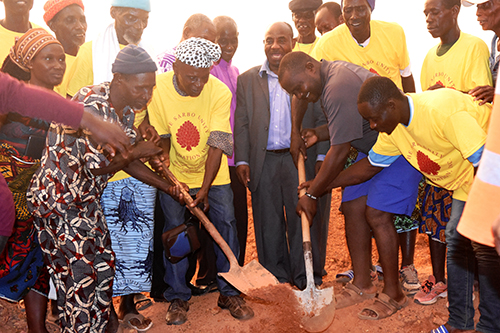
Our Vision
To create a sustainable and resilient community of people with the capacity to live and work in an environment that provides endless opportunities.
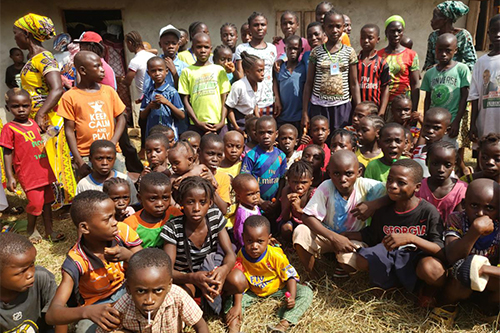
Our Purpose
To implement comprehensive development plans for marginalized and underprivileged communities of the Sarbo Chiefdom and adjacent tribal communities.
Our Values
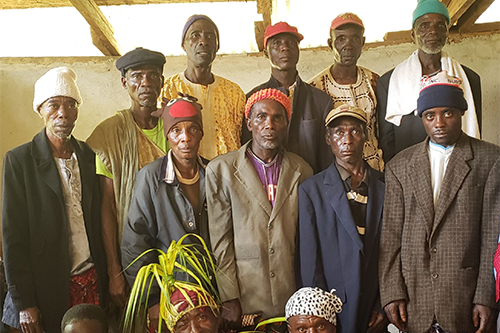
Integrity
The Sarbo Unity Foundation will operate beyond reproach, pursue honorable initiatives, and conduct business in ways that are honest, transparent, and ethical.
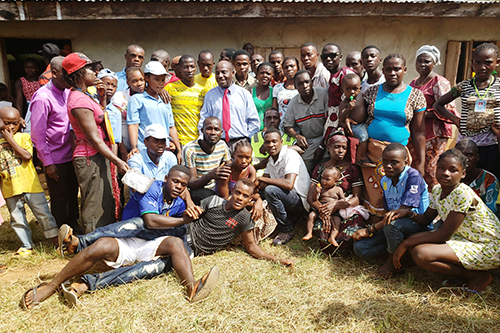
Excellence
The Sarbo Unity Foundation, Inc. will cultivate and train staff in the requisite skills and commitment to accomplish its mission.
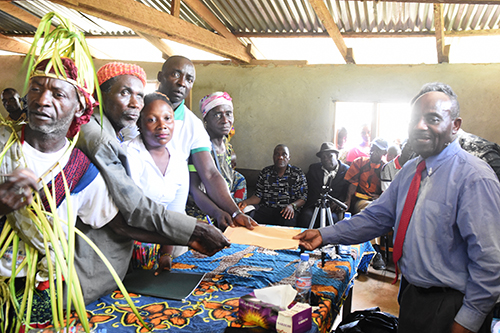
Good Stewardship
The Sarbo Unity Foundation will be good stewards of the resources bequeathed to its programs by setting and adhering to the standards for financial procedures and internal controls. The Foundation will be diligent in reducing costs, improving quality, and properly managing the nonprofit business with adherence to all applicable regulatory requirements and standards.
History of Liberia
Liberia was founded as an American colony in West Africa by the American Colonization Society, a philanthropic organization founded in 1816. The colony was to be settled by recaptured slaves and free people of African descent who were living in the United States of America. Before it became a colony, the region was known as the Grain Coast, a name given by European explorers because of the abundance of crops and grains grown there. The Grain Coast was inhabited by sixteen (16) major ethnic groups of African tribes who still comprise the indigenous Liberian population.

The idea of an American colony in West Africa was inspired by the formation of Sierra Leone as a crown colony by Great Britain in 1808. Unlike the government of Great Britain, the U. S. government withheld direct involvement in the affairs of the colony, leaving all management responsibilities to the American Colonization Society. Thus, the colony was declared an independent nation on July 26, 1847, as a means by which the colony would be financially self-supported through taxation.
Liberia’s form of government and constitution were patterned after the United States of America. Although the country was founded on the principles of equality for all, the indigenous African tribal inhabitants who were born within the political boundaries of the Liberian Republic were not admitted to citizenship until 1904 and were awarded voting rights beginning in 1946 (male only). Female indigenous inhabitants of Liberia were allowed to vote beginning in 1955.
The lack of citizenship meant that the indigenous inhabitants did not have basic human rights in the country of their birth including access to quality education, healthcare, housing, security, voting rights, and the rights of association or demonstration. Since citizenship is the basis for access to national government sponsored benefits, the Liberian government was not constitutionally obligated to commit its meager resources for transformation of a large agrarian peasant population who were not citizens. As a consequence, the indigenous population was never inspired towards a national unity with a sense of common destiny.
The exclusion of the indigenous population from citizenship, suffrage, and right of association, created in part communities of people who did not benefit from the expected rural developments such as clean water, roads, electricity, housing, infrastructure, and educational facilities. Thus, from 1847 to 1946, majority of rural indigenous children and young adults who should have had access to primary and secondary education did not and the few who did try had to relocate out of their tribal chiefdom to attend schools majority of whom were built and operated by foreign organizations and missionaries of various Christian denominations. Consequently, the literacy rate among the indigenous population has continued to be low. The Sarbo Development Center is intended to achieve the following goals:
- The regular high school will prevent separation and relocation of high-school age children to other tribes and urban areas
- The vocational training will provide more employment opportunities for youths and young adults.
- The programs at the Center will enhance social equity and overall quality of life.
- The Center will spur cultural transformation using education as a path to transform communities.
Give One U.S. Dollar
Can a mere one U. S. dollar bill substantially impact a whole tribe and change the literacy level of a child? The answer is “YES”. By donating just one U. S. dollar, you can buy one child his/her own textbook. Therefore, no donation is too small.
About the Founder
Dr. Jewlee Weah Tweh is a native of the Sarbo Tribe in River Gee County, Liberia, West Africa. As a child and young man, Dr. Tweh learned how to farm, hunt wild animals and fish. He earned a B. S. degree in natural science from Cuttington University College (Suacoco, Liberia), a M. S. degree in physical chemistry from the University of Pittsburgh(Pittsburgh, PA), and a Ph. D. in physical chemistry from the University of Detroit-Mercy (Detroit, MI). Dr. Tweh is retired from the City of Detroit where he managed the Engineering Materials Testing Laboratory as Senior Materials Chemist for 22 years. Over the years, Dr. Tweh held certifications in Comprehensive Safety Practice and Hazardous Materials Management. While managing the laboratory, Dr. Tweh taught chemistry at Wayne County Community College, Macomb County Community College, and Schoolcraft College. Dr. Tweh is the founder and president of the Sarbo Unity Foundation, Inc.

Our Logo: The Palm Bunch
The palm nut bunch represents sustenance and nourishment. It is the fruit of a native plant in the Sarbo Tribe. The variety of uses for the palm nut includes food, fuel and cash. The palm bunch best represent the Foundation because the Foundation’s mission is to provide a means for people of Sarbo and adjacent communities to help themselves out of poverty.
Our Finances
Our annual financial information will be contained in the United States Internal Revenue Service Tax Return. Services to Donors and Sponsors will be handled by the Donors/Sponsors Representative who will help Donors and Sponsors with any questions they may have about their donations to The Sarbo Unity Foundation, Inc.
Tax information – The Sarbo Unity Foundation is a tax exempt 501©(3) charitable nonprofit organization. To obtain a copy of our most recent tax return, you may request it by phone call or email.
State Fundraising Information – Donations to the Foundation are very much appreciated and are tax deductible to the fullest extent allowed by law. Information that the Foundation filed with the State of Michigan Attorney General Office concerning charitable solicitations may be obtained by calling the office in Lansing, Michigan. Please note that registration with the Attorney General Office of the State of Michigan does not imply endorsement, approval, or recommendation by the State of Michigan.